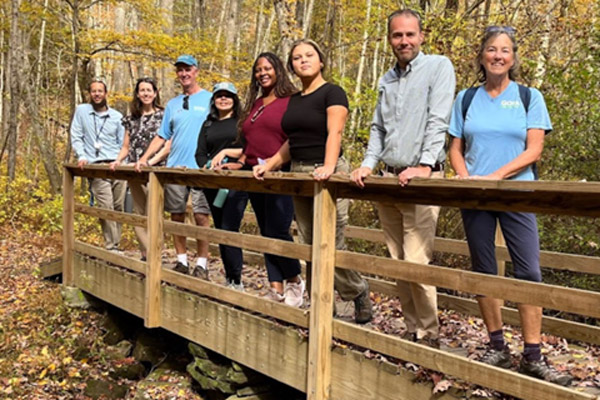NEW LONDON–A Superior Court jury returned a verdict Wednesday, May 18, 2005, against a developer who had sued to prevent the sale of the 75-acre Merritt tract on Fort Hill to the Groton Open Space Association.
The jury of four men and two women deliberated for about 1 1/2 hours Wednesday afternoon before finding against Ravenswood Construction LLC, Cheshire, and in favor of F.L. Merritt Inc.
Following the verdict, Judge Seymour Hendel declared GOSA’s contract to buy the property for $1 million to be valid and ordered it carried out, subject to its terms and conditions.
Ravenswood has 20 days to decide whether to appeal the verdict to a higher court.
The trial began Tuesday morning, May 17, 2005, and jurors returned their verdict about 3:45 p.m. Wednesday. They had started deliberating at 2 p.m., after lunch Wednesday, and took one 15 minute break, shortly before announcing their finding.
Ravenswood filed notice of its suit against Merritt April 15, 2003, one day after GOSA signed its contract with Merritt, and the case had been in vigorous litigation since then. The construction company asserted that it had a prior contract with Merritt dating from March 14, 2003.
Nelson Merritt, president of the family-owned F.L. Merritt Inc., signed a Ravenswood-proposed agreement in private at his lawyer’s office Feb. 28, 2003, to be held for release later. His lawyer, Robert Lane, of Greenwich, notified Ravenswood on March 14 that he was prepared to forward the agreement to be held in escrow pending receipt of certain releases. Shortly after, Mr. Merritt came to an agreement with GOSA. Mr. Lane then voided the Ravenswood papers by cutting out Mr. Merritt’s signature and sent them back to Ravenswood, along with a check for its $50,000 deposit. Ravenswood cashed the check.
Merritt’s attorney, William Kroll, of Noank, pressed the point that a rider to the proposed Ravenswood-Merritt agreement required delivery of a fully executed contract in order to become effective and that such delivery never took place. He said in his closing argument that the plaintiffs had avoided the issue of delivery “like the plague” because it was fatal to their case. William Hescock, attorney for GOSA, said, “No matter how close you get, you don’t have a contract until both parties agree… There was no final deal.” Paul Geraghty, attorney for Ravenswood, argued unsuccessfully that Mr. Merritt had accepted the contract when he signed it. He said, “There is nothing in the contract that says you can sign it conditionally.”
GOSA won a $650,000 state grant toward the purchase on April 8, 2003. GOSA’s application for the grant notes that the property lies in a greenbelt of approximately 1,500 acres. It is the site of two Class A streams that converge to flow into Palmer Cove on the Fisher Island Sound. Its northwest section includes an area of hardwood trees that has not been logged since 1868. Two state species of concern–Red- Shouldered Hawks and Wood turtles–are found in the forest. Aquatic life includes Marbled and Spotted Salamander, Fairy Shrimp and Wood Frogs. The land is home to Fox, Mink, Muskrat, Raccoon, Coyote, Deer, Opossum and Wild Turkey, among other species. The application also notes the presence of “an extensive variety of forest-interior and neo-tropical migrant birds.”
Ravenswood had applied in 2000 to build a 79-lot subdivision, called Mystic Estates, in the area. Subsequently, regulators whittled that number down. In early 2002, GOSA appealed a Planning Commission decision to allow a 48-lot subdivision. GOSA’s appeal was denied by the Superior Court, but the organization won the right to take its case to the Appellate Court, where the issue currently is pending.
The action on which the jury decided May 18, 2005, was separate from the so-called SLAPP suit filed by Ravenswood and Mystic Estates Partners against GOSA and nine individuals in June 2003. The suit alleged that GOSA and the others named had abused the legal process and interfered with the plaintiffs’ contractual relationships. The action was dropped quickly in July 2003 as the office of Attorney General Richard Blumenthal prepared to step into the case on the side of GOSA and the other defendants. SLAPP stands for Strategic Litigation Against Public Participation.
Groton Attorney Paulann Sheets represented GOSA in the successful opposition to the SLAPP suit.

